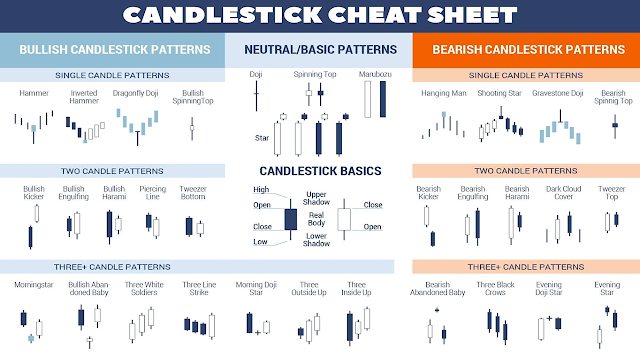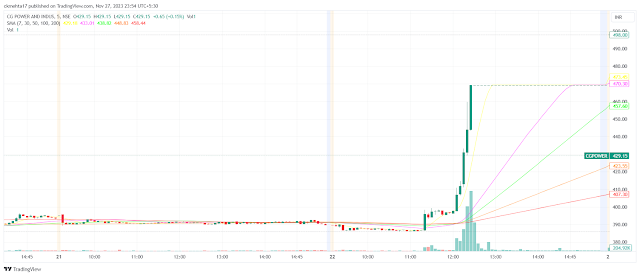Income Tax on Share Market Trading in India
Income Tax on Share Market Trading in India
The taxation of income from share market trading in India can
be divided into different categories based on the type of trading activity: intraday
trading, short-term investment, long-term investment, and Futures
& Options (F&O). Each of these has its own set of tax implications
under the Income Tax Act of India.
Let’s break it down:
1. Intraday Trading
Intraday trading refers to buying and selling stocks within
the same trading day, without taking delivery of the shares. It is speculative
in nature.
- Taxation
Category:
Income from intraday trading is treated as speculative business income.
- Tax
Rate: The
income from intraday trading is added to your total income and taxed
according to the applicable income tax slab rates. There are no
special rates for this.
- Expenses: You can deduct expenses
directly related to trading activities, such as brokerage, commission, and
other charges from your speculative income.
- Losses: Speculative losses can only be
set off against speculative gains and can be carried forward for 4 years.
2. Short-Term Investment (Capital Gains)
Short-term investment refers to holding shares for less than
12 months (for equity shares and equity-oriented mutual funds).
- Taxation
Category: Gains
from selling shares within 12 months are categorized as short-term
capital gains (STCG).
- Tax
Rate: STCG is
taxed at a flat rate of 15% under Section 111A. This is
irrespective of your income tax slab.
- Expenses: STCG allows for the deduction
of the Securities Transaction Tax (STT) and any transaction fees paid
during trading.
- Losses: Short-term capital losses can
be set off against both short-term and long-term capital gains and carried
forward for 8 years.
3. Long-Term Investment (Capital Gains)
Long-term investments involve holding shares for more than 12
months.
- Taxation
Category:
Profits earned after holding shares for more than 12 months are classified
as long-term capital gains (LTCG).
- Tax
Rate: LTCG is
exempt up to ₹1 lakh in a financial year. Beyond that, it is taxed
at 10% without the benefit of indexation, under Section 112A.
- Losses: Long-term capital losses can
be set off against long-term capital gains only and can also be carried
forward for 8 years.
4. Futures & Options (F&O) Trading
Futures and Options (F&O) are derivative contracts and
can be held for a short term or longer, but they are treated differently from
stock trading.
- Taxation
Category:
Income from F&O trading is classified as non-speculative business
income.
- Tax
Rate: This
income is added to your total income and taxed at the applicable income
tax slab rates.
- Expenses: You can deduct all expenses
related to F&O trading, including brokerage, internet, and other
related expenses.
- Losses: Non-speculative losses (from
F&O trading) can be set off against any income except salary income,
and can be carried forward for 8 years.
5. Dividend Income
Dividends are distributions of a company's earnings to
shareholders and are taxed as follows:
- Taxation: Dividends from stocks are
added to your total income and taxed at your applicable slab rate.
However, if dividend income exceeds ₹5,000, the company deducts a TDS
of 10%.
- Exemption: Earlier, dividend income was
tax-free up to ₹10 lakh, but that exemption has been removed since 2020.
6. Tax Treatment for Different Types of Investors
The treatment of taxes also differs based on the
classification of the investor:
- Trader: If you are a trader who buys
and sells frequently, your income may be classified as business income,
and profits/losses from the share market will be taxed accordingly.
- Investor: If you hold shares with the
intention of investment (over a longer term), gains will be taxed as capital
gains.
7. Tax on Other Income from Share Trading
- Bonus
Shares:
Taxation on bonus shares is similar to equity shares, where gains from
selling them are treated as capital gains. The holding period for bonus
shares starts from the date of allotment.
- Rights
Issue: When
shares are issued under a rights issue, their sale is treated under the
head of capital gains, based on the holding period.
8. Taxation of Losses
If you incur losses in share trading, the Income Tax Act
allows you to set off these losses under specific conditions:
- Short-Term
Capital Losses:
These can be set off against both short-term and long-term capital gains.
- Long-Term
Capital Losses:
These can only be set off against long-term capital gains.
- Carry
Forward: Both
STCL and LTCL can be carried forward for 8 years.
Example Scenarios
Let’s look at two common scenarios for better understanding:
Example 1: Intraday Trader
Suppose you make a profit of ₹1,00,000 from intraday trading
and incur expenses of ₹10,000 on brokerage and other fees. Your taxable income
will be ₹90,000, which will be added to your total income for that financial
year and taxed according to your slab rate.
Example 2: Long-Term Investor
You hold a stock for 2 years and sell it for a profit of
₹2,00,000. Since this is long-term capital gains, the first ₹1 lakh is exempt,
and the remaining ₹1 lakh will be taxed at 10%, meaning you pay ₹10,000 in
taxes.
9. Filing Tax Returns for Share Market Trading
- Form
ITR-2: If you
are an investor earning capital gains, use ITR-2 to file returns.
- Form
ITR-3: If you
are a trader earning business income (speculative or non-speculative), use
ITR-3.
10. Conclusion
Taxation in the share market can seem complex due to the
different types of transactions and the specific rules governing each.
Understanding the nature of your income—whether speculative, capital gains, or
business income—is crucial in determining the correct tax liability. It's also
important to maintain proper records of your transactions to ensure smooth tax
filing.






















No comments